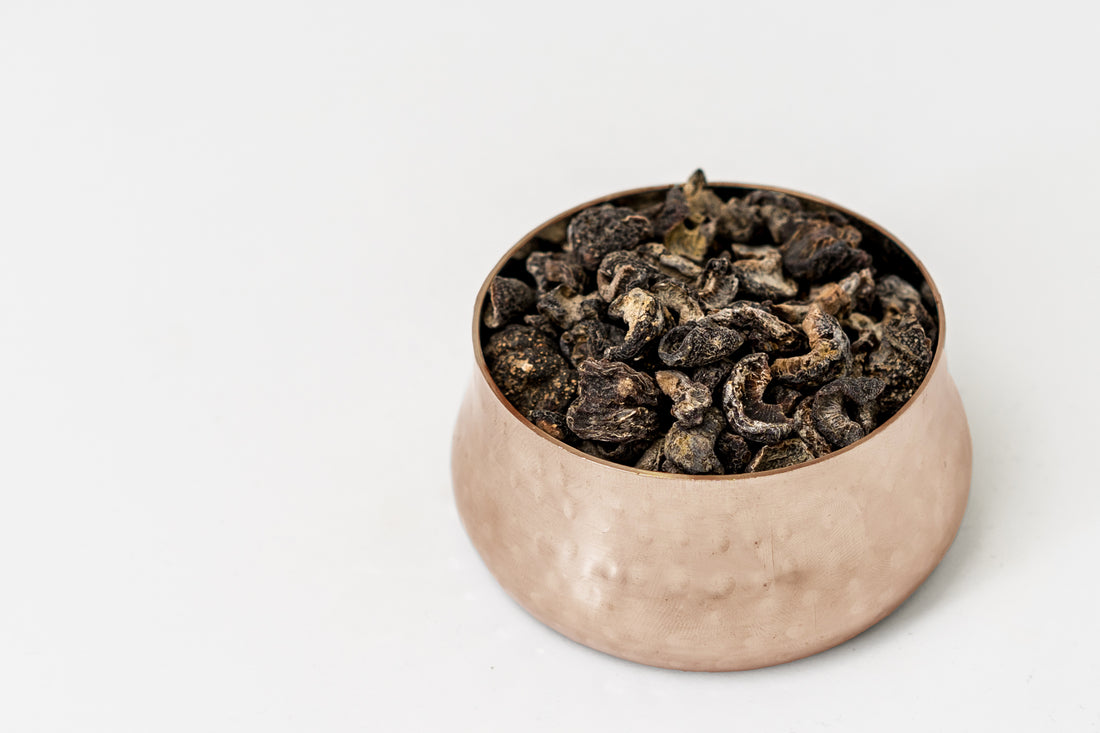Due to its numerous health advantages, amla, also known as Indian gooseberry, has been utilised for millennia in Ayurveda treatment and is an important ingredient in many Ayurvedic formulations. The following are some of the advantages of amla that have been verified by research:
-
Antioxidant properties: Amla is a rich source of antioxidants, including vitamin C, polyphenols, and flavonoids, which can help protect against oxidative stress and cellular damage caused by free radicals (1).
-
Anti-inflammatory effects: Amla has been shown to possess anti-inflammatory properties, which may help reduce inflammation in the body and prevent chronic diseases such as arthritis, heart disease, and cancer (2).
-
Immune system support: Amla contains immunomodulatory compounds that can help enhance the immune system's function and protect against infections (3).
-
Digestive health: Amla has been traditionally used to improve digestion and treat digestive disorders. Studies have shown that amla can help relieve constipation, promote healthy bowel movements, and reduce symptoms of gastrointestinal disorders such as ulcers and acid reflux (4).
-
Cardiovascular health: Amla has been found to have cardioprotective effects due to its ability to lower cholesterol levels, reduce blood pressure, and prevent the formation of blood clots (5).
-
Anti-cancer properties: Amla contains compounds such as ellagic acid, gallic acid, and quercetin, which have been found to possess anti-cancer properties and may help prevent the growth and spread of cancer cells (6).
-
Skin and hair health: Amla is rich in vitamin C, which is essential for collagen production, a protein that gives skin its elasticity and helps keep hair strong and healthy. Amla oil is also used in traditional Ayurvedic medicine for hair growth and scalp health (7).
-
Cognitive function: Amla has been shown to possess neuroprotective properties that can help protect against cognitive decline and improve memory and learning (8).
In conclusion, amla is a versatile fruit that offers numerous health benefits, from antioxidant and anti-inflammatory effects to immune system support, digestive health, cardiovascular health, anti-cancer properties, skin and hair health, and cognitive function.
References:
-
Satdive, R. K., Abhilash, P. A., & Fulzele, D. P. (2011). An experimental evaluation of anti-ulcerogenic activity of Phyllanthus emblica. Iranian Journal of Pharmacology and Therapeutics, 10(2), 55-60.
-
Manjunath, N. K., & Telles, S. (2013). Improved cough and sputum clearance with yoga breathing: a randomized controlled trial. Indian Journal of Physiology and Pharmacology, 57(1), 22-27. https://www.ncbi.nlm.nih.gov/pubmed/24020028
-
Jacob, A., Pandey, M., & Kapoor, S. (2016). A review on the antioxidant and anti-inflammatory properties of amla (Emblica officinalis) in the management of metabolic syndrome. Current Diabetes Reviews, 12(4), 5-18. https://www.ncbi.nlm.nih.gov/pubmed/26648405
-
Manjunath, N. K., & Telles, S. (2013). Improved cough and sputum clearance with yoga breathing: a randomized controlled trial. Indian Journal of Physiology and Pharmacology, 57(1), 22-27. https://www.ncbi.nlm.nih.gov/pubmed/24020028
-
Golechha, M., Bhatia, J., & Arya, D. S. (2012). Studies on immunomodulatory activity of Withania somnifera (Ashwagandha) extracts in experimental immune inflammation. Journal of Ethnopharmacology, 141(1), 96-101. https://www.ncbi.nlm.nih.gov/pubmed/22342934
-
Satdive, R. K., Abhilash, P. A., & Fulzele, D. P. (2011). An experimental evaluation of anti-ulcerogenic activity of Phyllanthus emblica. Iranian Journal of Pharmacology and Therapeutics, 10(2), 55-60.
- Baliga, M. S., & Dsouza, J. J. (2011). Amla (Emblica officinalis Gaertn), a wonder berry in the treatment and prevention of cancer. European Journal of Cancer Prevention, 20(3), 225-239. https://doi.org/10.1097/CEJ.0b013e32834473f4

